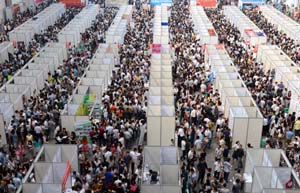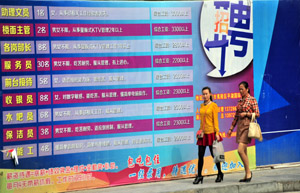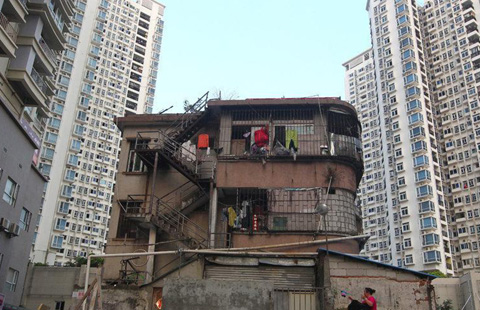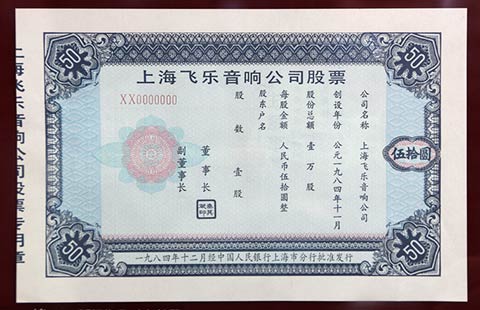Li to let world in on jobs barometer
(Agencies) Updated: 2014-10-23 07:30A monthly jobless rate could be a real barometer of the Chinese economy as GDP data are only released quarterly, Ding said. The survey is also directly conducted by the central statistics bureau, minimizing distortions by local officials to improve their performance, the economist said.
There might still be flaws. Migrant workers would usually go back to their rural communities when they are laid off during economic downturns, which would be seen as exiting the labor force and not reflected in the unemployment rate, Cai said. The statistics bureau has compiled the surveyed jobless gauge since 1996, providing it to top policymakers such as the Premier, Cai said, because "it fluctuated too much in different years and cities".
The rate was 9.6 percent in 2008, when coastal manufacturers were hit by the global financial crisis, according to Cai's estimate, which he said was close to the statistics bureau data based on checks with officials. In 2008 and 2009, the published registered rate ranged from 4 percent to 4.3 percent.
"After years of discovery, conditions are ready to publish the urban unemployment rate," the State Council said in a July 30 statement after Li held a regular meeting. The survey scope will be expanded, the methodology will be improved and statistics bureaus will publish the data "at the suitable time to fully and actively reflect the unemployment situation", it said.
Sheng said on Tuesday that the survey has been recently expanded to 65 cities and will be published after one year's observation.
|
 |
 |
| China issues tax breaks to boost employment | Working the numbers adds up for nation |
- 'Jobless growth' phenomenon haunts Philippines economically
- Li says China able to keep around 7.5% growth
- Chinese officials upbeat on economic growth
- China's rebalancing means take effect
- China focuses on comprehensive growth target: finance minister
- Market-oriented reforms help support China's further growth: expert
- China stocks close mixed Friday
- Finnair's designer plane to take-off
- China adds 10.82 million new jobs in Jan-Sept
- Members named for Asia infrastructure bank
- HK Stock Connect on track
- Home prices continue to moderate in more Chinese cities
- Top 10 highs and lows for Nokia in China
- China's coal-rich Shanxi to restore mined-out areas
















